Profile
Linda Ohui Teye impacting the world with benevolence

“When I was in school, a lady needed just GH¢10 to register for the National Health Insurance Scheme for her child and I gave it to her thinking it was just GH¢10 but she actually came back to thank me for the money after she had accessed healthcare for her son with the card”, Ms Linda Ohui Teye, the Chief Executive Officer of the Lintel Aid Organisation has narrated.
She continued “I then realised that we don’t need so much to help people and secretly started nursing my passion to work as a philanthropist”.
From educational support to assistance for the less privileged and women empowerment, Ms Teye has always worked to meet the needs of people since 2015 when she started her organisation.
Lintel Aid Ghana seeks to improve upon the livelihood of individuals through the implementation of programmes that offers children and the vulnerable in society a chance to decent living.
Ms Teye, a graduate of the University for Development Studies (UDS) developed the passion to assist humanity out of her meagre savings from her national service allowances when she chanced on a television broadcast on an underprivileged school owned by a physically challenged man.
“I discussed my passion with a lot of people but it was not until after my national service that a friend dared me to begin the journey with the little I had and coincidentally the programme on TV pushed me to start”, she narrated.
The young philanthropist told “The Spectator” that she had been undertaking projects from funds raised from individual sponsors, donors, social media friends and her family.
“It has not been easy but I am unable to resist the desire to help people and what drives my passion is that priceless smile I see on the faces of the people we help which gives me so much fulfillment and as a Christian, I know giving is pleasing to the Lord Jesus Christ”, she said.
Ms Teye confessed that her training at the university as a Community developer probably sharpened her passion as she was sent to work in very deprived communities as part of her studies.
“Recently I was able to mobilise funds to assist a young man pay his fees after gaining admission to Study Bachelor of Science in Engineering at the Kwame Nkrumah University for Science and Technology and the joy that came to him was rewarding”, she narrated.
Ms Linda Teye believed that in the next 10 years, her organisation would grow to become the biggest in Ghana and make bigger impact in the educational and socio-economic well-being of individuals.
She said it was refreshing to see her efforts being recognised by stakeholders with several awards as a youth philanthropist; including the Coca-Cola Achievers’ Award 2017, the 2018 top 30 Under 30 Pioneer Award which was dedicated to showcasing and nurturing Ghana’s leading talents as well as the Ghana Humanitarian and Business awards 2018 for the National Youth Volunteer On Humanitarian Dealings Within Rural Areas in Ghana.
Other awards to her credit are the “Youth Leadership Parliament Woman of the Year Award she received in 2018 and another award in 2018 for emerging the winner in the Community Development Category for The 40 Under 40 Awards.
She hopes to settle down in future with the man of her dream who would support her in her endeavours.
The young philanthropist stated that she could expand her act of benevolence if she received enough financial support and called on donors to support her to make her passion a reality.
“If the world is ours tomorrow, then we should begin to take responsibility no, together let’s work on things we think are not right; our tomorrow begins today!! It’s up to us now, it’s our world now. Let’s all go out and make a difference”, she quoted from the diaries of the late Mr Kofi Annan.
From Lydia Darlington Fordjour, Wa
Profile
Albert Litela Obidiaba: The artist who wove Ghana’s soul into the King’s Baton
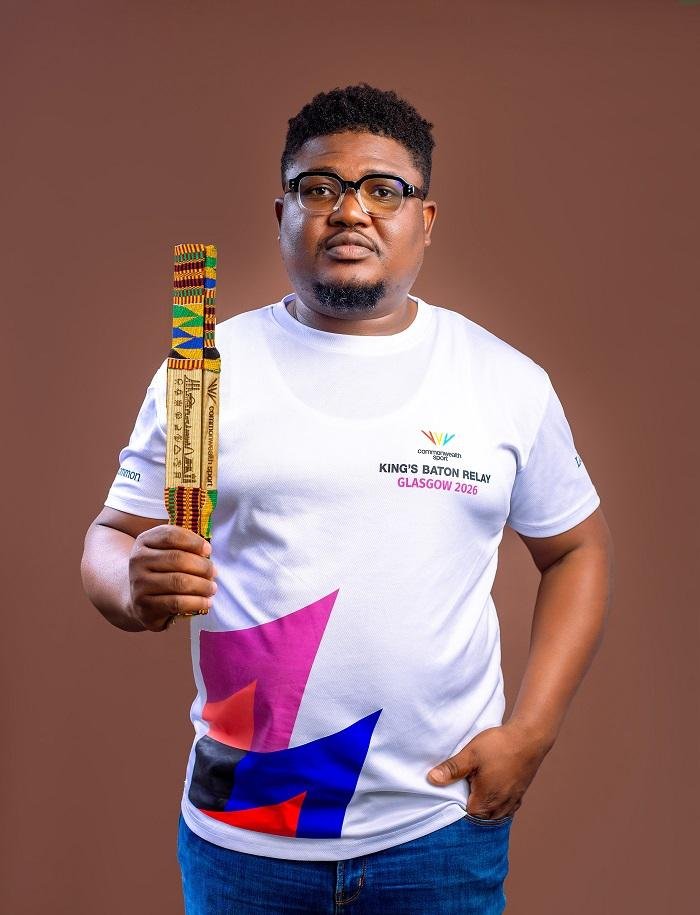
When the world’s eyes turn to the King’s Baton on its global journey, one of Ghana’s most profound artistic stories travels with it. It will be a story of creativity, culture, and national pride crafted by Albert Litela Obidiaba.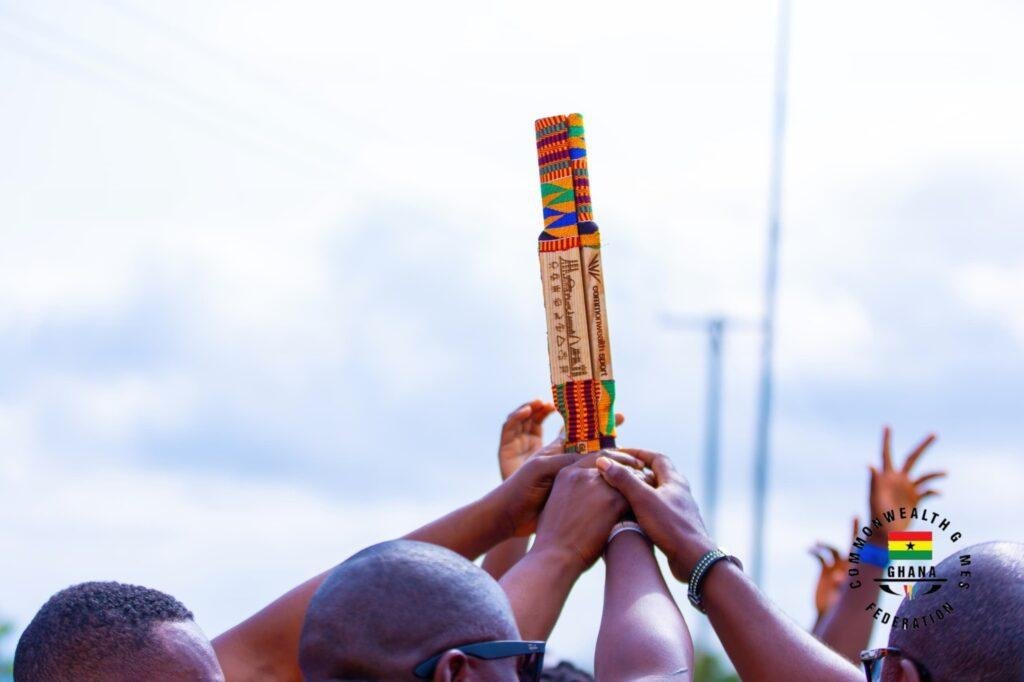
From the quiet town of Old Baika in the Oti Region, Albert’s journey as an artist has always been about telling stories. It is not just through words, but through symbols, textures, and meaning.
“From a young age, I was drawn to the power of art, knowing how colours and textures can capture not just emotion but culture and identity,” he recalls.
Today, his name has become synonymous with innovation rooted in traditional bridge between Ghana’s past and its global creative future.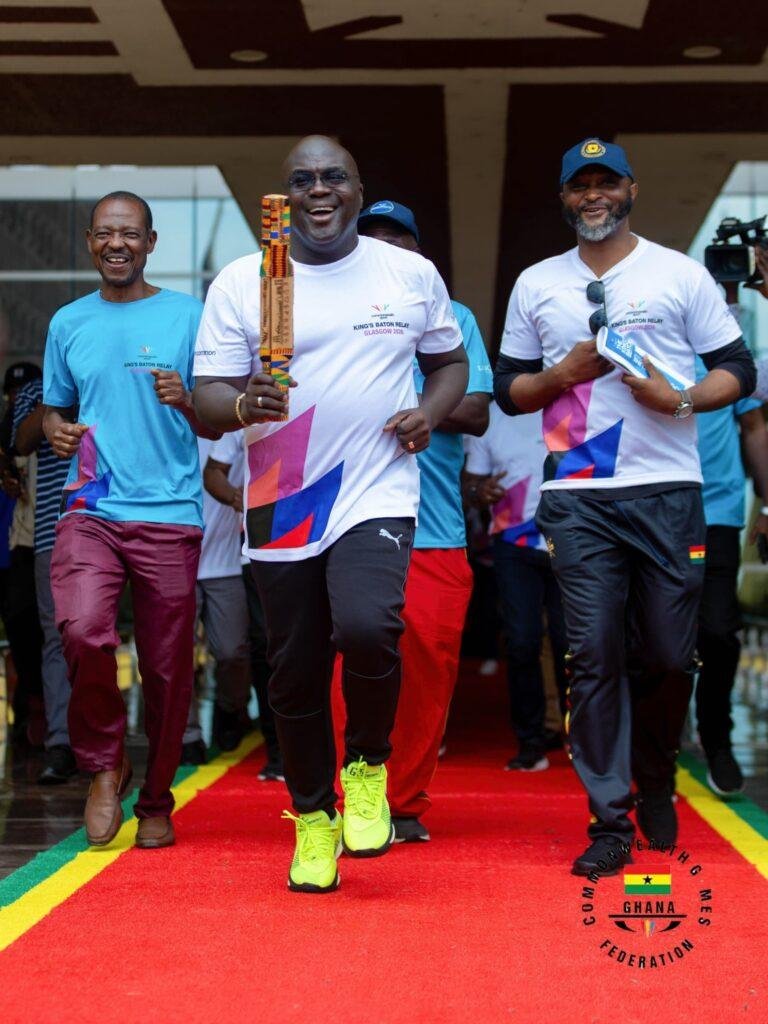
Albert’s love for art was born from curiosity. Surrounded by the vibrancy of Ghanaian culture; the patterns of kente, the stories behind Adinkra symbols, and the textures of daily life, he began sketching and crafting early on.
“Simple things told deep stories,” he says. “That fascinated me.”
As he matured, his art evolved into a personal mission to preserve and reinterpret Ghana’s heritage for a modern audience. His style reflects a seamless blend of culture and contemporary design, each piece a narrative of unity, history, and pride.
“I see art as storytelling through form and symbolism, it should feel rooted in purpose yet speak to today’s world,” he explains.
When the call came to design Ghana’s version of the King’s Baton, Albert saw it as both a national duty and a creative calling.
Recommended by mentors like Mr Charles Osei Asibey, who trusted his talent and understanding of Ghanaian symbolism, he embraced the project wholeheartedly.
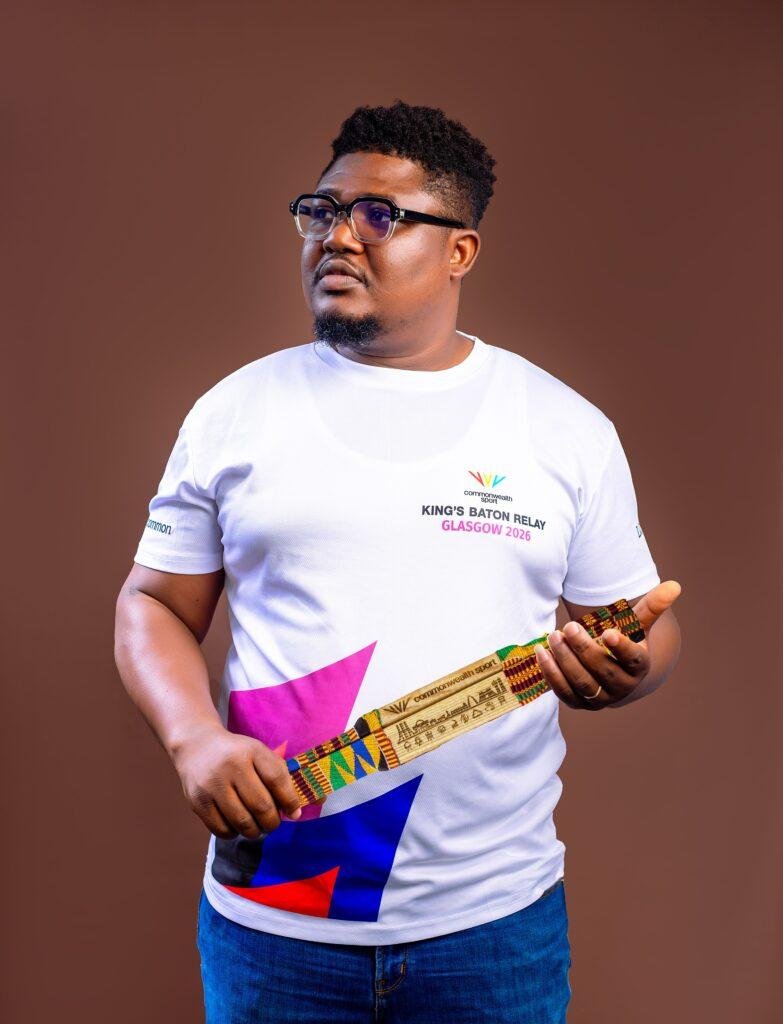
His vision was clear; to create a piece that would embody unity, pride, and the enduring spirit of Ghana.
Drawing from traditional motifs, he integrated textures inspired by kente weaving, representing hard work, continuity, and creativity. The golden tones symbolise strength and dignity, while the contours and natural motifs mirror Ghana’s landscapes and people.
“The King’s Baton had to tell our story of who we are, what we value, and how we see the world, it is more than art, it is identity in motion,” he said.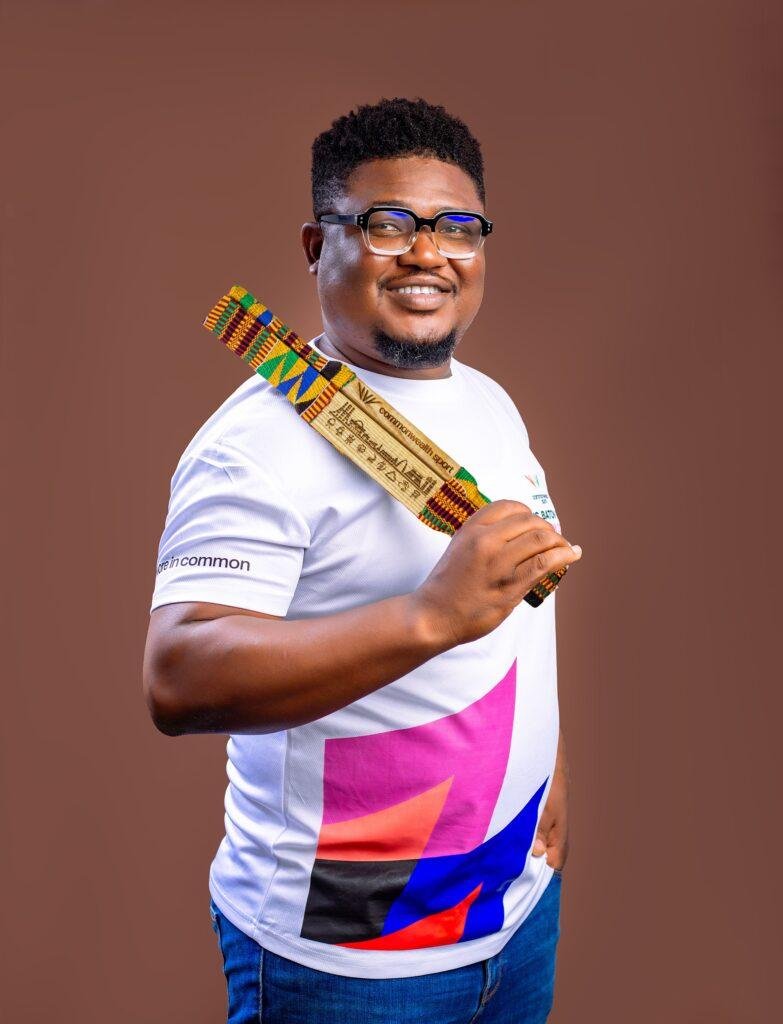
Every etch, every pattern carries meaning. From concept to completion, the entire process took three intense weeks which were filled with research, design sketches, consultation, and collaboration with skilled artisans.
“It was days and nights of work, but a lifetime of meaning,” he says with quiet pride.
Creating a design that represents all of Ghana’s diverse cultures was no small feat. Albert had to balance aesthetics, authenticity, and technology thereby using sustainable wood, carefully treated and certified, to reflect the nation’s commitment to nature and preservation.
“It wasn’t easy finding the right mix,” he admits. “But those challenges pushed me to think deeper. They made the final piece stronger — both artistically and symbolically.”
For Albert, Ghanaian culture is both muse and message. His works echo the values of unity, strength, persistence, and wisdom, drawn from Ghana’s traditions.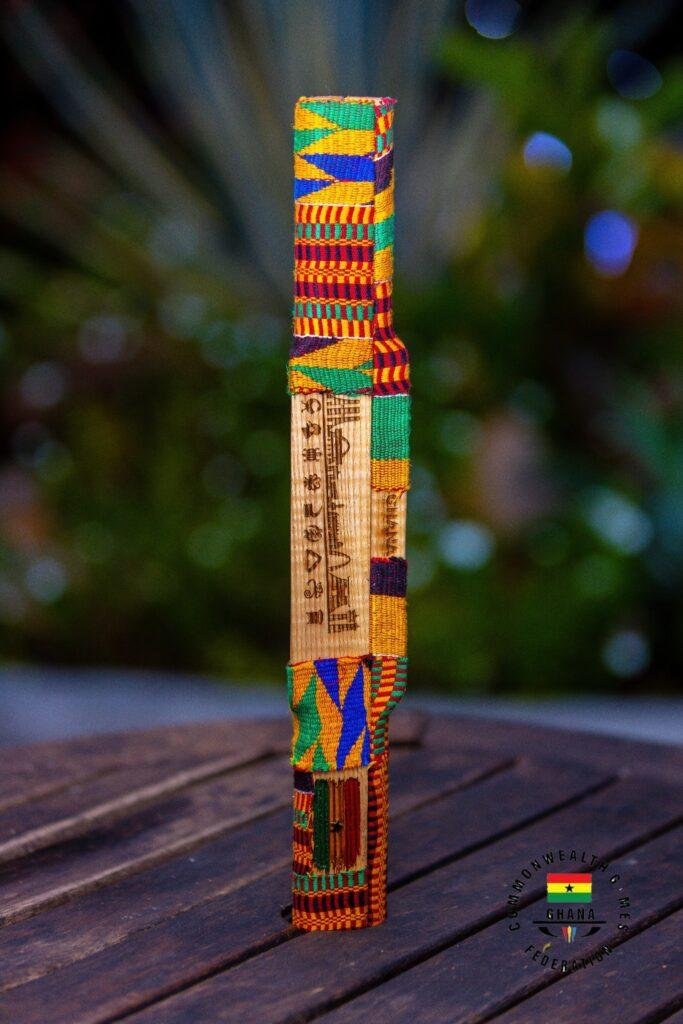
“Art preserves who we are and every line and symbol tells a story of belonging,” he said, and believes art is one of the most powerful tools for building national pride.
Designing the King’s Baton has been a defining moment in his creative journey and that it deepened his appreciation for cultural storytelling. “It taught me that creativity is also a form of service,” he said.
The experience has opened new professional doors, but more importantly, it gave him a renewed sense of purpose making him embrace a call to national duty.
“My soul will be glad even after my days on earth are over,” he said beaming with smiles.
Beyond the King’s Baton, Albert has worked on numerous projects celebrating Ghanaian identity through contemporary art and design. His ongoing works explore symbolism and heritage in new forms which includes blending materials, stories, and styles from across Ghana’s regions.
He is currently preparing projects that continue the conversation the baton began. They are about unity, creativity, and Africa’s evolving artistic voice.
To young artists aspiring to make their mark, Albert’s advice is for them to believe deeply in their craft and that the world is always looking for authenticity “which comes from knowing who you are and where you come from.”
On how he wants to be remembered, he said, “I want to be remembered as an artist who used creativity to celebrate culture and connect people. If my name is remembered as the one who designed Ghana’s version of the King’s Baton, that will be enough, because it means I carried Ghana in my hands, and shared her with the world.”
By Esinam Jemima Kuatsinu
Join our WhatsApp Channel now!
https://whatsapp.com/channel/0029VbBElzjInlqHhl1aTU27
Profile
Survival to service: Margaret Odame Donkor the breast cancer preacher
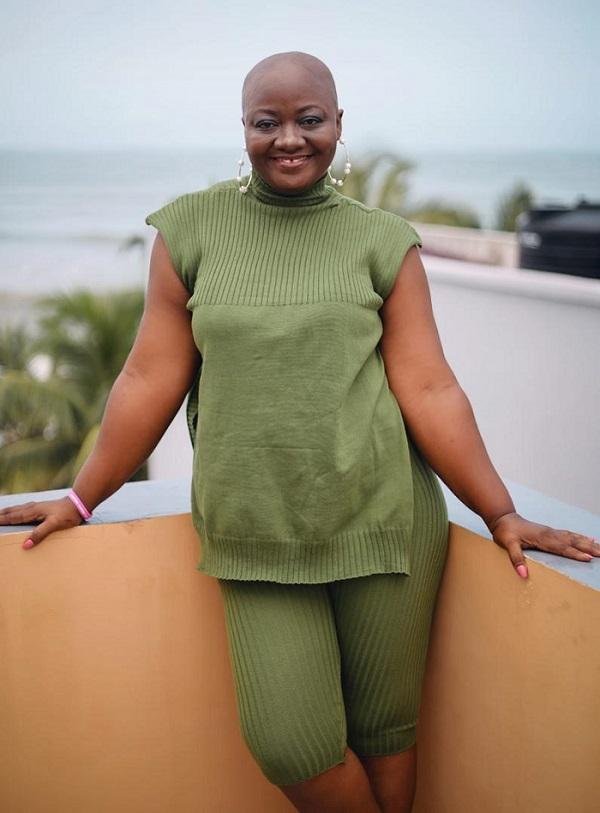
A ‘trotro’ bus heading to Nsawam was filled with the usual sounds from conversations, music, and sometimes a preacher delivering a message.
But when Margaret Odame Donkor rises to speak, she does not preach salvation or sell herbal remedies. Instead, she shares her journey as a breast cancer survivor, urging passengers to examine their breasts regularly, seek medical help early, and never lose hope.
Her pulpit is not a church, but the crowded minibuses of Ghana’s public transport system. Her message is not about repentance, but about survival.
She urges women to check their breasts regularly, encourages men to support their wives during health challenges, and reassures everyone listening that a cancer diagnosis is not the end of life.
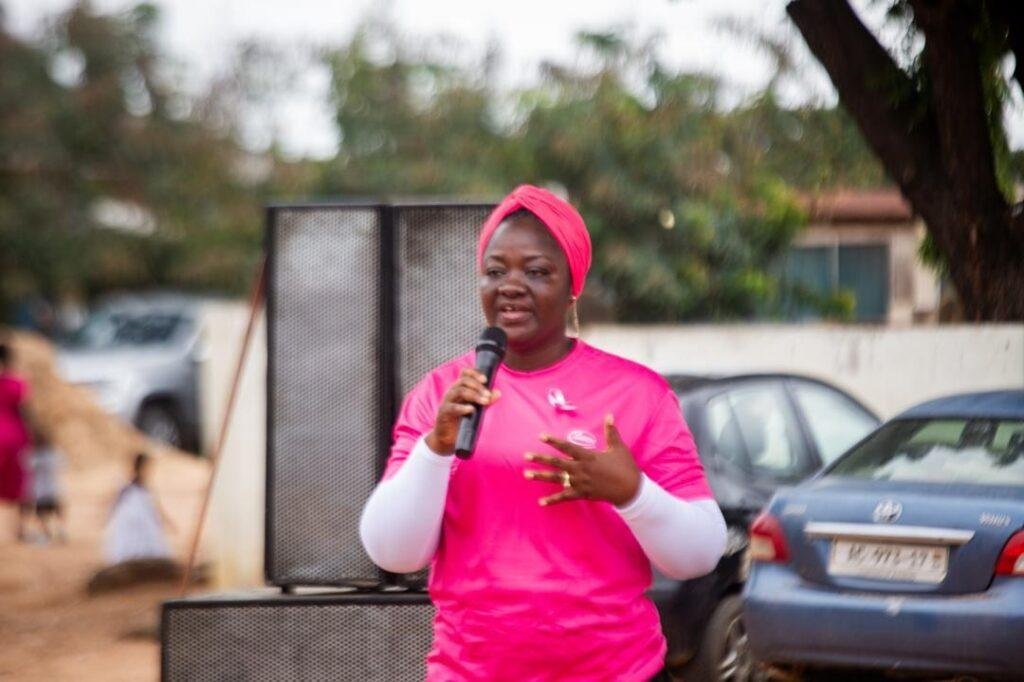
For Margaret, creating awareness is more than a duty-it is a calling born out of personal pain, fear, and triumph.
Her words carried weight because they come from lived experience.
At age 48, Margaret has walked through the valley of fear and pain, battled stage three invasive carcinoma, and emerged not just a survivor but an advocate determined to educate others.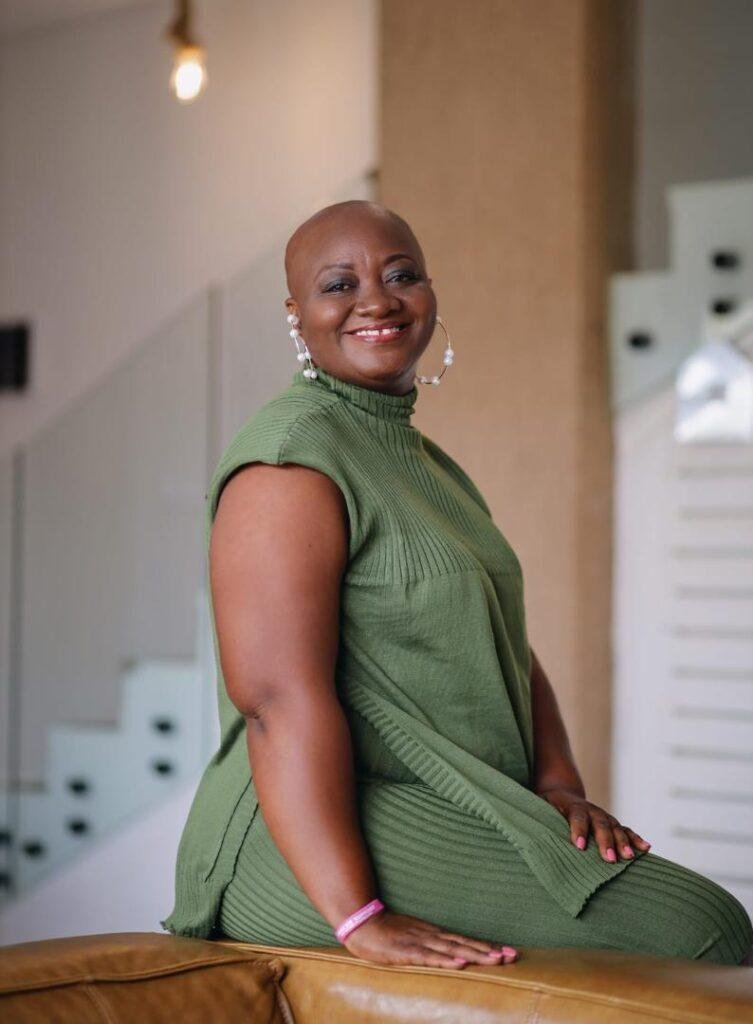
Cancer journey
Margaret’s encounter with breast cancer stretches back decades. At 22, she discovered a lump in her left breast. It was removed and declared benign. Relieved, she skipped regular checks and moved on. Then in 2021, the lump reappeared—this time spreading toward her armpit.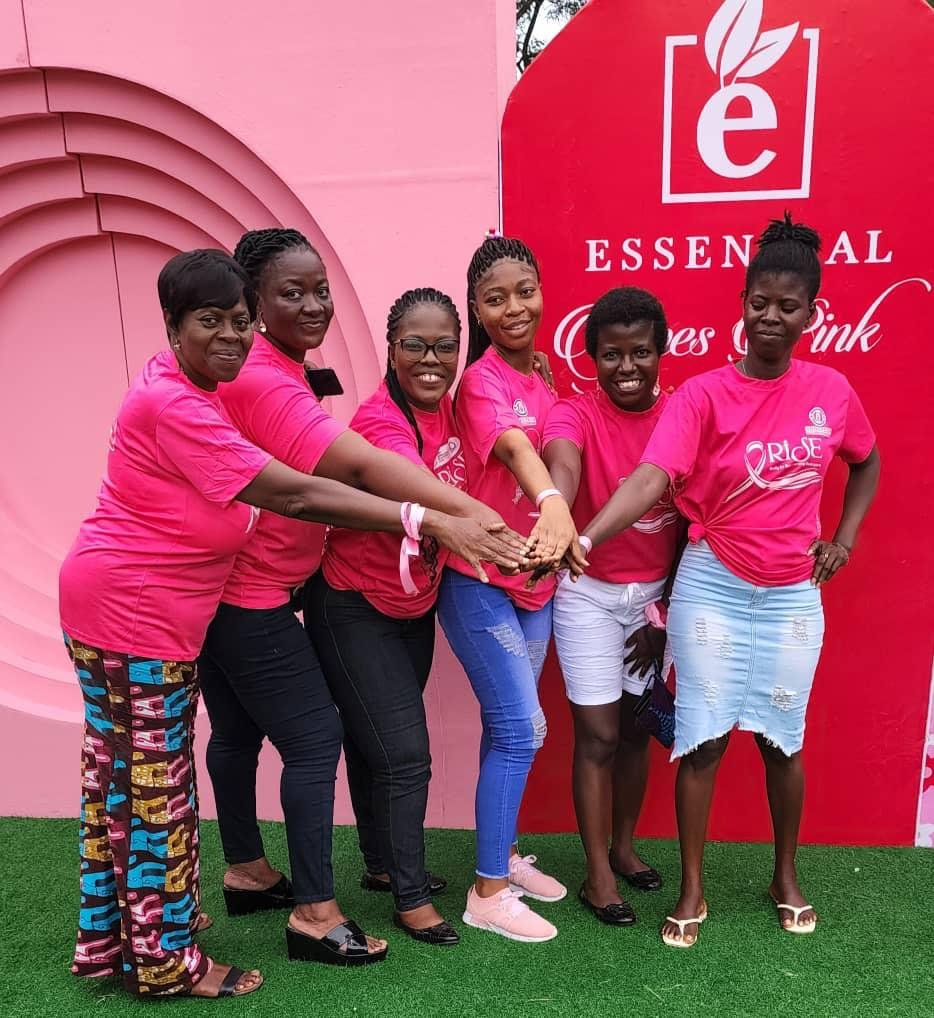
At a church screening in October 2022, doctors detected suspicious lymph nodes. Further tests confirmed her worst fear: stage three invasive carcinoma.
“It wasn’t easy,” she recalls softly. “But my faith in God kept me strong. My husband, children, family, friends, and colleagues formed an army behind me. Their prayers, visits, and encouragement gave me the courage to fight.”
“Be grateful every day because you never know what tomorrow may bring. No one has it all, but with love and support, you can endure,” she stated.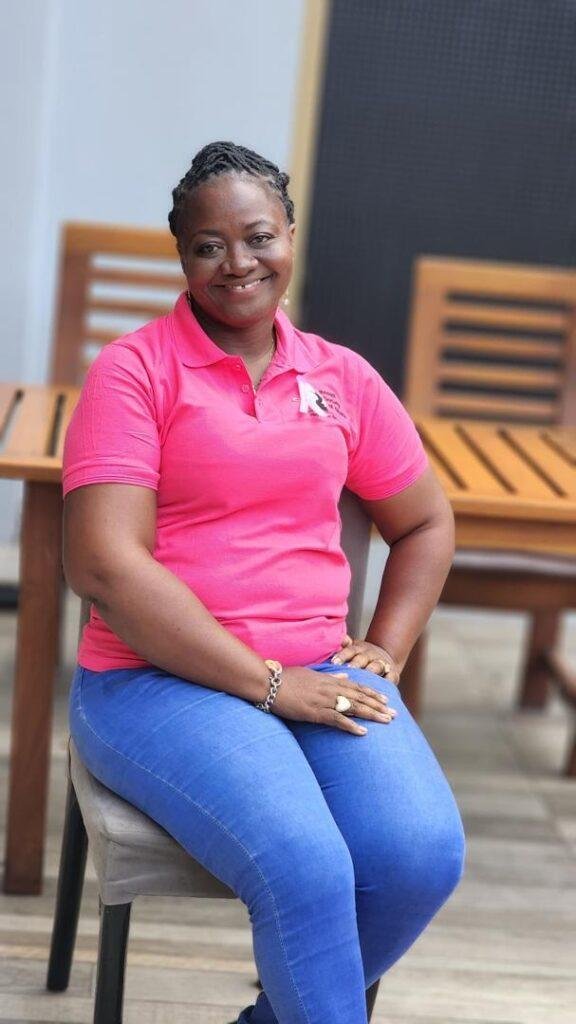
Her greatest fear remains recurrence and not living long enough to see her children graduate and become the people she dreams for them to be.
Before cancer disrupted her life, Margaret had found purpose in interpretation. In 2020, a friend spotted a Judicial Service vacancy and encouraged her to apply. After years of unsuccessful attempts at government jobs, she was reluctant, but she tried once more. This time, she succeeded and was posted to the Eastern Region, her home.
Today, she works at the Nsawam District Court, one of the busiest in the area. On a typical day, she arrives at 7:30am, prepares dockets, and confers with magistrates. She interprets proceedings in Twi, Ga, Hausa, and occasionally Ewe, ensuring that justice was accessible to all.
Her role is demanding. Cross-examinations require her to switch quickly between English and local dialects, while marriages often call for interpreting vows in couples’ preferred languages. Still, she thrives. “The registrars and magistrates I’ve worked with have been amazing. They make the environment very comfortable,” she stated.
Beyond the courtroom, Margaret is also an entrepreneur. In 2017, she founded Nubreed Décor, an events decoration business born from her childhood love for beautifying spaces. She recalls cutting paper decorations as a child and helping her cousin rent out chairs and decorate venues.
Balancing décor with court work was tough, and her health struggles after surgery made it even harder. Radiation left her with persistent rib pain, forcing her to slow down. “Now I hire more hands, which makes business expensive, but it helps me achieve my goals,” she explained.
Her biggest challenge as an entrepreneur remains finance. “The event industry is huge, but I have to work at my own pace and focus on my niche,” she admited.
Cancer changed how Margaret values people and relationships. She learned that those you least expect often become your strongest supporters. She urges families to stand by patients with prayers, encouragement, and financial support, reminding society that a cancer diagnosis is not the end of life.
Her advocacy extends beyond awareness talks. She dreams of establishing a counselling centre for young people and hopes Ghana will expand access to mammograms and radiotherapy centres. “Every patient deserves a chance at survival,” she said firmly.
She urged the youth to live peacefully and be their brother’s keeper, learn to be content and rely on God.
To women, she asserted that, “love yourselves and make breast checks routine while calling on Ghanaians to be open-minded, avoid being judgmental, and show love.
By Esinam Jemima Kuatsinu

 Profile7 days ago
Profile7 days agoAlbert Litela Obidiaba: The artist who wove Ghana’s soul into the King’s Baton

 News7 days ago
News7 days agoDaddy Lumba’s wife, children run to court to injunct December 6 funeral arrangements

 News1 week ago
News1 week agoPresident Mahama to meet Auditor-General, Chief Justice and Attorney-General over misuse of public funds






